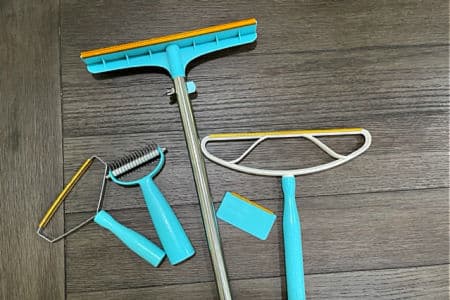FYI: If you buy something through a link on this site I may earn a commission - at NO extra cost to you.
Puppy Depression
The puppy depression (aka post-partum puppy depression or puppy blues) is something which hits YOU, not your puppy.
And usually it hits completely unexpectedly!
Even if you've been hoping, waiting and planning for your puppy (or
dog) for months, or years, the reality of puppy care can sometimes come
as a shock... causing some emotional upheaval to kick in.
Luckily, this is a temporary condition and is born out of love and concern for the welfare of your new furry friend.
It's almost like 'buyers remorse', but more complicated.
The puppy blues often hit first-time puppy owners, but they can affect anyone who's recently brought home a puppy, or an adult dog.
Even if you've owned dogs before, or currently, adding a new pack member can still be stressful and surprising in it's responsibilities.
Regardless of how old Fido is when you bring him home, the feelings and reactions can be the same.
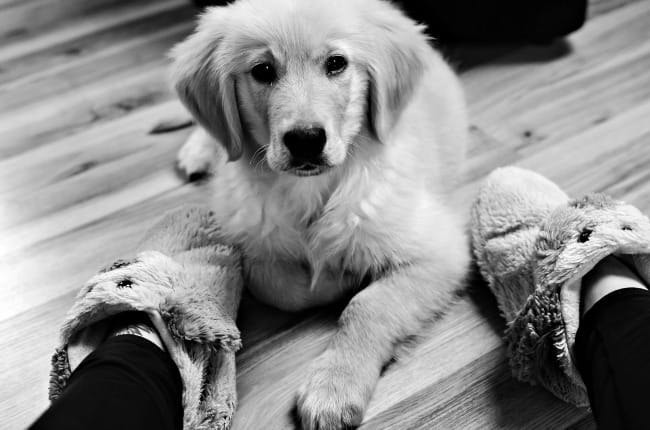
This page will help you to understand why you feel so sad/anxious or overwhelmed, and give you practical tips and advice for dealing with those feelings and moving towards the loving relationship you've been hoping for.
Why Does Puppy Depression Happen?
Bringing home a new puppy or dog is often a much anticipated, and very happy occasions.
You have so many hopes, plans and dreams for your new companion and are awash with warm, fuzzy feelings.
Then reality hits, and along with it comes post-partum puppy depression.
It could hit as quickly as on the car ride home, the first or second day when you suddenly wonder how on earth you thought you could keep this little guy happy and healthy.
Or it could happen several weeks (possibly even months) later when you realize how much time, work and money is involved in taking care of raising a puppy or caring for a dog!
Sleepless nights, potty training battles, adolescent puppy attitude, destruction of your things, behavior issues... these can all seem too much to handle at times.
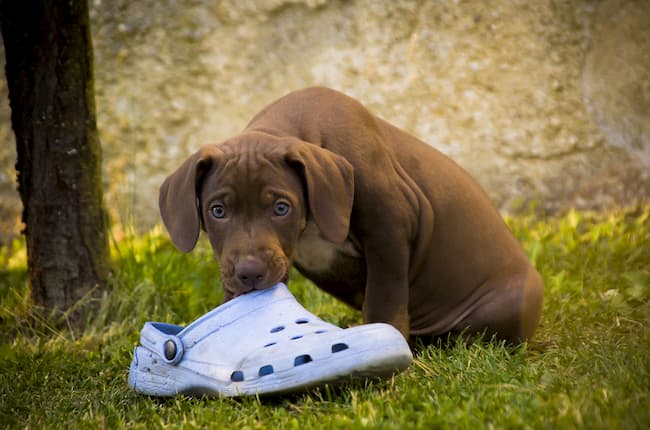
BUT, you love the little guy. Oh, how you love him!
No wonder, you may be left struggling with conflicting emotions and wondering what's wrong with you.
Luckily, the answer is 'Nothing.' Nothing is wrong with you.
You're feeling this way because you love Fido, you realize what he needs, and you want to do what's best for him.
You're not alone, and these feelings will pass, but a little extra help and support can shorten that time-frame and make everyone feel better.
Causes of Post-partum Puppy Depression
There are many different things which can cause you to feel sad, depressed or anxious about life with your new puppy.
Sometimes it's a combination of different factors.
Here's a look at the most common causes of the Puppy Blues:
- Potty training issues
- Behavioral problems
- Financial commitment
- Lack of sleep
- General puppy care workload
- Puppy doesn't 'fit' with the family
- Interaction with existing pets
- Damage to home/belongings
- Limits placed on social activities/home life
These are all real problems that you're likely to face when you add a puppy or dog to your family.
With the time, patience, effort, consistency and love they can all be addressed (the financial one needs the practical solution of a healthy bank balance).
Taking things step by step and giving yourself permission to feel stressed out or sad now and then can also help keep things in perspective.
Minimizing the Chances of Puppy Depression
In order to reduce the chances of post-partum puppy depression happening to you, it's important to get out in front of it.
This means tackling the most common causes of the puppy blues BEFORE you even bring your little guy, or gal, home.
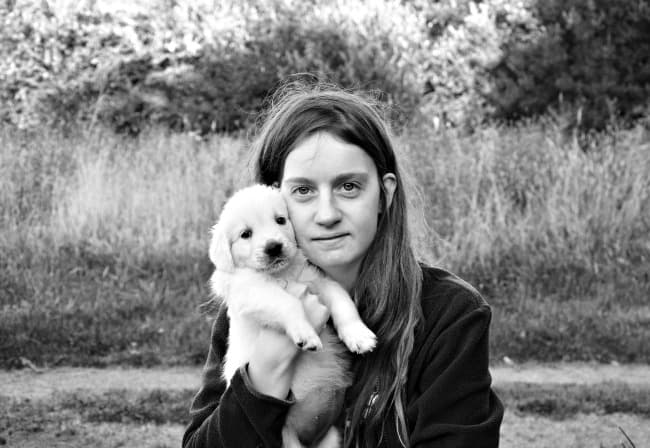
I realize that most of you reading this now already have your new pup/dog and are in the throes of the blues, but this info. may help you next time around... puppy depression is not limited to first time owners.
Here's what you can do to help prevent problems from cropping up later:
Keep expectations realistic
This is a biggie!
Unrealistic expectations are to blame for a many cases of depression in new puppy/dog owners.
We weave all sorts of wonderful fantasies about how life is going to be with our new best friend. Fantasy is not reality.
Dogs give us unconditional love and acceptance, companionship, loyalty, protection and a heart that adores us beyond what we deserve.
BUT a dog is a living, breathing creature with feelings and needs, both practical and emotional.
A puppy needs a huge investment of time and patience because he has so much to learn.
None of what we expect from a puppy comes naturally to him, it has to be taught... with love and consistency.'
An adult dog comes with already formed habits and a personality that has been shaped by his past experiences.
With a puppy you must EXPECT to:
- Afford equipment, food, training and health care (The Cost of Owning A Dog)
- Spend time on potty training... and cleaning up the inevitable messes.
- Be woken up once or twice a night for potty breaks, possibly for weeks
- Spend time daily working on manners and basic obedience
- Invest time and money in formal obedience classes
- Have your belongings chewed or damaged (even after puppy proofing).
- Stay home because your puppy can't be alone for long periods - even when you want to go out.
- Feel worried or anxious about your puppy's health/diet/behavior
With an adult dog you must EXPECT to:
- Afford equipment, food, training and health care
- Possibly have to improve potty habits, or crate train from scratch
- Spend time daily on dog training and manners
- Invest time and money in formal obedience classes
- Face some poor behavior traits/habits that are established
- See some sadness, confusion, fear or anxiety in your dog
- Have the bonding process take place more slowly than with a puppy
If you already have dogs or other pets in the home, be prepared for some conflict/disinterest or anxiety after introducing the new family member.
Resident dogs may even seem a little depressed themselves for a short while.
Cats often just disappear until they feel comfortable with the newcomer but other dogs can be stressed, anxious, scared or even defensive.
Generally they will learn to get along given time and space but you need to be alert for any real problems and step in if/when necessary.
Choose the right dog (and/or breed)
Every dog is a unique individual, and every breed has it's own very specific traits, needs and health concerns.
Every family has it's own structure, lifestyle and activity level.
All homes have a variety of different sizes, locations and amenities.
The puppy or dog you choose to come into your family and live in your home can't just be a random choice... there are too many variables!
For the best chance at getting a dog who fits with your home, lifestyle, activity level, climate, hopes and plans you need to choose wisely and take the time to get the right fit.
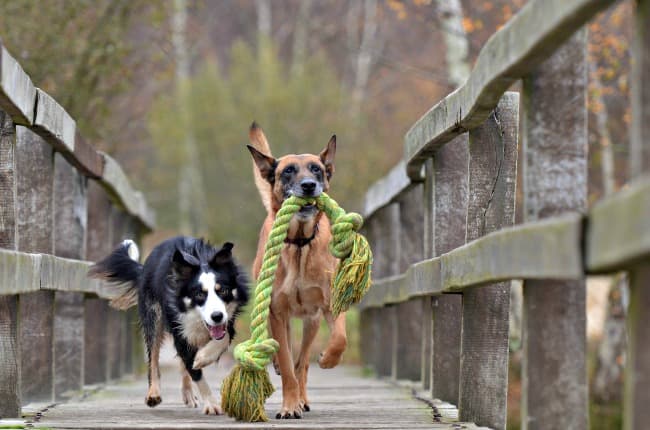
Getting this right can minimize the anxiety, blues and puppy depression that can happen when you feel that you made the wrong choice of dog for your family.
See this page for tips and advice... Choosing The Right Breed of Dog
For full information on dog breeds and types, visit this page... Dog Breed Information.
Be prepared!
If you're prepared for your new family member before you bring them home, you can reduce some of the anxiety and stress of the early days.
These include:
- Dog crate
- Dog bed (for adult dog)
- Premium food (puppy or dog formula)
- Urine cleaning products
- Pee pads or dog potty (if no access to outdoors for elimination)
- Appropriate toys
- Collar and ID tags
- Leash or harness
- Healthy training treats
- Grooming aids
It's also wise to:
How to handle the 'Puppy Blues'
Proper preparation can reduce or eliminate a lot of the issues which lead to puppy depression, but that doesn't necessarily mean it won't happen at all.
Luckily there are things you can do to counteract the fact that you're feeling sad or depressed in your new role as puppy parent.
Use a Dog Crate
A crate is probably one of the most versatile and most important pieces of equipment you can buy for your new family member, puppy or adult dog.
Crate training is the simplest and most straightforward potty training method available, and it works for all ages (see Crate Training Puppies or Housebreaking an Older Dog).
But, that's not the only way in which a crate is useful.
A crate is also the perfect way to contain your pup/dog whenever you can't be around to supervise closely (this is very important to prevent house-training accidents or damage to your home).
Dogs are den animals and most of them come to see their crate as a safe, comfy place to nap or just watch the world go by.
You can also use your crate as a time-out spot (with a favorite, sturdy chew toy) when your training commands are being consistently ignored and your authority needs a little reinforcement.
Interact with other Puppy/Dog Owners
Whether it's in person, or online, spending time with other puppy/dog owners can really help you to feel less alone/worried and make short work of puppy depression.
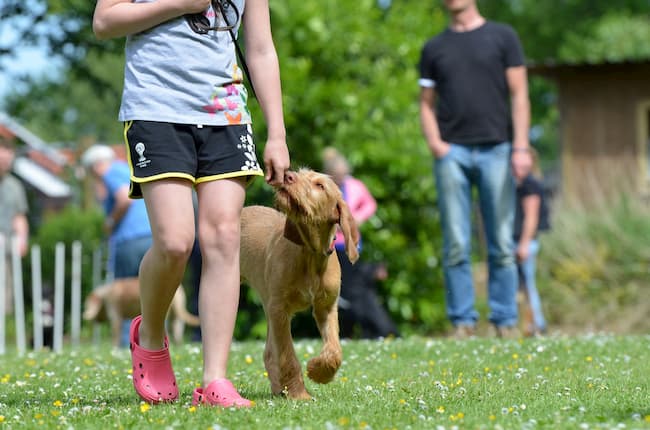
There are puppy training classes, dog parks (once puppy is vaccinated), dog forums and chat rooms, family/friends with dogs and more.
You're not the only person who's feeling (or has felt) depressed or anxious after bringing their pooch home, and talking to others who've weathered this stage will help.
Socialization is also an important part of your puppy or dogs' learning curve.
Get Professional Help
And no, I don't mean a psychologist!
Enrolling Fido in classes with a professional dog trainer, or even having a trainer come to your home for some one-on-one evaluation and training, can give your confidence a big boost.
It's also excellent socialization for your little guy/gal.
You can also talk things over with your veterinarian.
Puppies need regular vet checks and preventative care during the first few months and these appointments are the perfect time to ask questions or get input on anything that concerns you.
Make sure Fido gets plenty of exercise
When your puppy or dog is getting exercise, that often means you're getting it too.
Exercise is a great way to release those 'feel good' endorphins in both you and your new four legged friend, so it should be part of every day's activities.
Obviously the amount and type of exercise your pooch needs depends a lot on his age, size, breed and health, but most dogs can take daily walks, play low-impact games and work on obedience commands.
Mental stimulation is also important.
Playing with interactive toys, learning new commands, playing games such as hide-and-seek and taking part in flyball, dog agility or similar activities are all beneficial.
There's a lot of truth to the saying that 'a tired puppy is a good puppy'.... and a good puppy is less likely to cause their owner to feel overwhelmed and stressed.
Keep Track of Progress
In the busy day-to-day of life, it's easy to lose sight of the big picture.
Being tired, overwhelmed or stressed doesn't help.
So, from time to time it pays to look back a little and see how far you (and Fido) have come.
That little puppy who couldn't hold his bladder for more than thirty minutes?
Now, he's spending two hours in his crate without an accident.
The pup or dog who hid under the table for hours, or refused to eat for the entire first day?
Now he runs around the house like a crazy thing and gobbles up every meal.
You both deserve some praise for the progress you've made. Treat yourselves :)
Arrange Some Downtime for Yourself
Taking care of a puppy is very labor and time intensive, and it can exhausting and overwhelming sometimes... that alone can lead to the puppy blues.
Give yourself a break by asking a friend or relative to puppy-sit for you one night a week or on a weekend day, so that you can get some time off from your responsibilities.
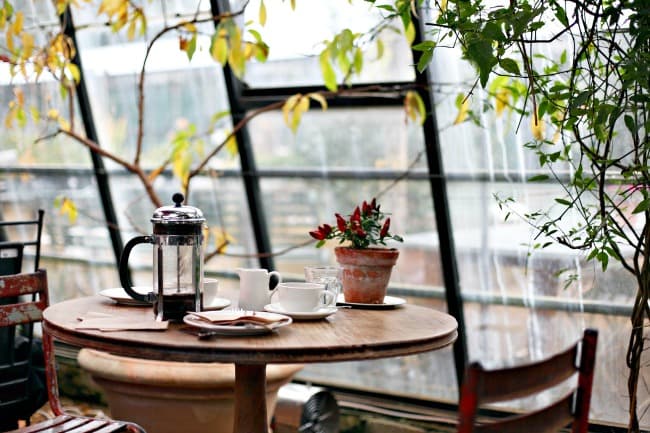
There are also many qualified and professional dog sitters in most areas who can be employed to take care of Fido now and then if you don't have dog friendly family or friends close by.
Getting a little time to regroup and refresh can put everything back into perspective, and when you get home to that happy, dancing little furball who is SO happy to see you, it's difficult to feel sad or upset.
If you're suffering from puppy depression I hope this page has given you some comfort and inspiration... and helped you to understand that this is a common problem and passes given time.
Your relationship with your puppy or dog is always evolving and growing, and given time it will become something that you treasure and remember for a lifetime.
you might also like...
- Home
- First Days At Home
- Puppy Depression
FTC Disclosure: Some pages on this site contain affiliate links. I may earn on qualified purchases.





